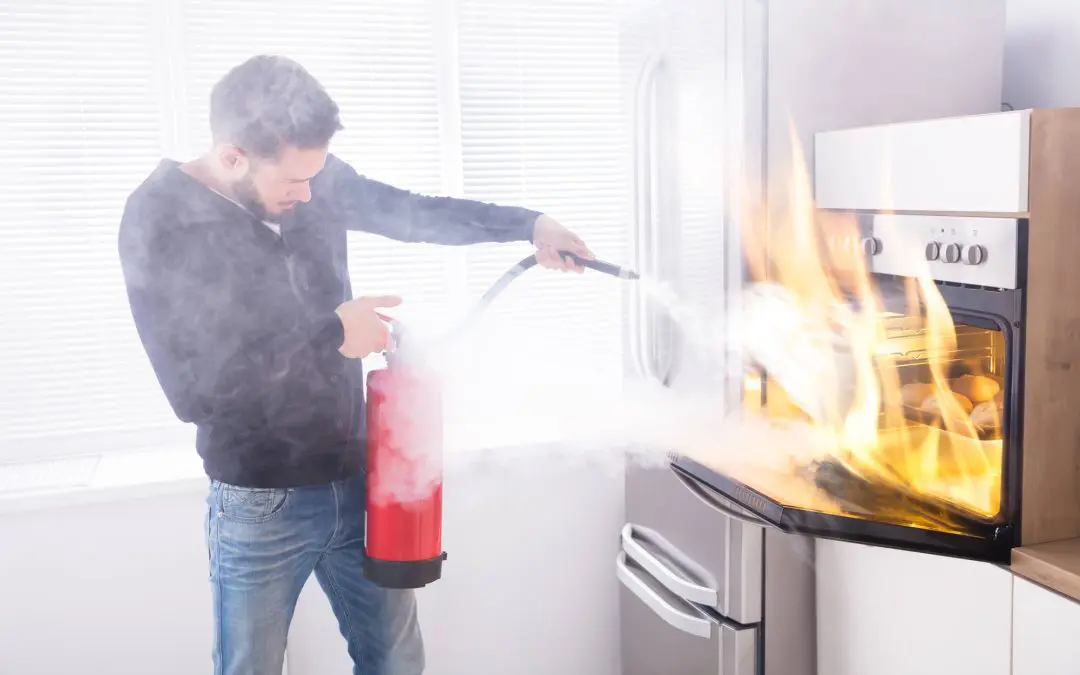Your kitchen is where meals come together, stories are shared, and coffee kicks off the day. But it’s also where most household injuries happen. Hot surfaces, sharp tools, and slick floors don’t mix well with distraction or haste. Kitchen safety comes down to habits—simple things that add up to a big difference.
Kitchen Safety Basics: Clear the Chaos
Crowded countertops make accidents more likely. When tools, ingredients, and appliances are spread all over the place, you’re one step away from knocking over a knife or tipping a pot. Keep your workspace clean and clear. As soon as you’re done with something, put it away. This one habit cuts down on spills, burns, and cuts in a big way.
Take Your Time with Knives
Most knife injuries happen when people are rushing. Always cut on a stable surface and use a sharp blade—dull ones slip more easily and require more force. Keep your focus when you’re slicing, dicing, or chopping. And don’t drop dirty knives in the sink. Someone reaching in blindly could get cut. Wash them and put them away as soon as you’re done.
Respect the Heat
Stoves, ovens, and hot pans don’t give second chances. Always use oven mitts that actually cover your hand and wrist. Make sure pot handles are turned inward to prevent accidental bumps. If something starts to burn, stay calm. Grease fire? Don’t use water—cover it with a metal lid or dump baking soda on it. Keep a kitchen-rated fire extinguisher nearby, and know how to use it.
Stay in the Kitchen While Cooking
Leaving the room while something’s on the stove is one of the fastest ways to end up with smoke—or flames. Even if you just need a minute, it’s not worth the risk. Turn the burner off or wait until someone else can take over. It doesn’t take long for a small issue to become a big one.
Keep Kids and Pets Out of the Way for Kitchen Safety
Children and pets bring unpredictability into a space that demands focus. If kids are helping, give them a designated spot and safe task—nothing involving knives or heat. Pets shouldn’t be in the kitchen while you’re cooking at all. One step in the wrong direction can send hot food or heavy pans flying.
Inspect Your Tools
If cords are frayed or plugs feel loose, unplug the appliance and stop using it. Old or damaged equipment can spark fires or give shocks. Clean your toaster regularly. Don’t overload power outlets. Unplug what you’re not using. And don’t run cords under rugs or towels—they trap heat.
Watch Your Step
Water, grease, and crumbs on the floor turn the kitchen into a slipping hazard. Wipe up spills immediately. Use non-slip mats near sinks and stoves. Wear shoes with a good grip if you will be on your feet for a while. Bare feet and slick socks make accidents more likely.
Know When to Keep It Simple
If you’re running on fumes, distracted, or sick, it might not be the time to try out a new recipe or cook for a crowd. Accidents happen fast when your head’s not in the game. Keep it easy, or order out. There’s nothing wrong with putting safety first.
Staying safe just takes a little awareness and a few smart choices that become habits. Keep your focus, trust your instincts, and treat the kitchen with the respect it deserves.
Kitchen Safety FAQs
How should I store knives to avoid accidents?
Use a knife block, drawer insert, or wall-mounted magnetic strip. Loose knives in a drawer are an accident waiting to happen.
Can I use a towel instead of an oven mitt?
No. Towels can slip or catch fire. Use proper oven mitts with heat-resistant material and full coverage.
How often should I test the smoke detector near my kitchen?
Check it monthly and change the batteries every six months. It’s one of the most effective safety tools you’ve got.
Is it safe to let kids help in the kitchen?
Yes, with limits. Set clear rules and give them tasks that don’t involve heat or sharp tools. Keep them in one safe spot where you can supervise.
What should I do if a grease fire breaks out?
Turn off the heat. If it’s safe to do so, cover the pan with a metal lid. Use baking soda or a Class B fire extinguisher. Never use water—it will make the fire worse.
Esham Inspections provides home inspections in Maryland and Delaware. Contact us to schedule our services.

